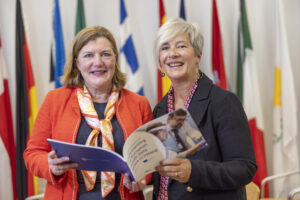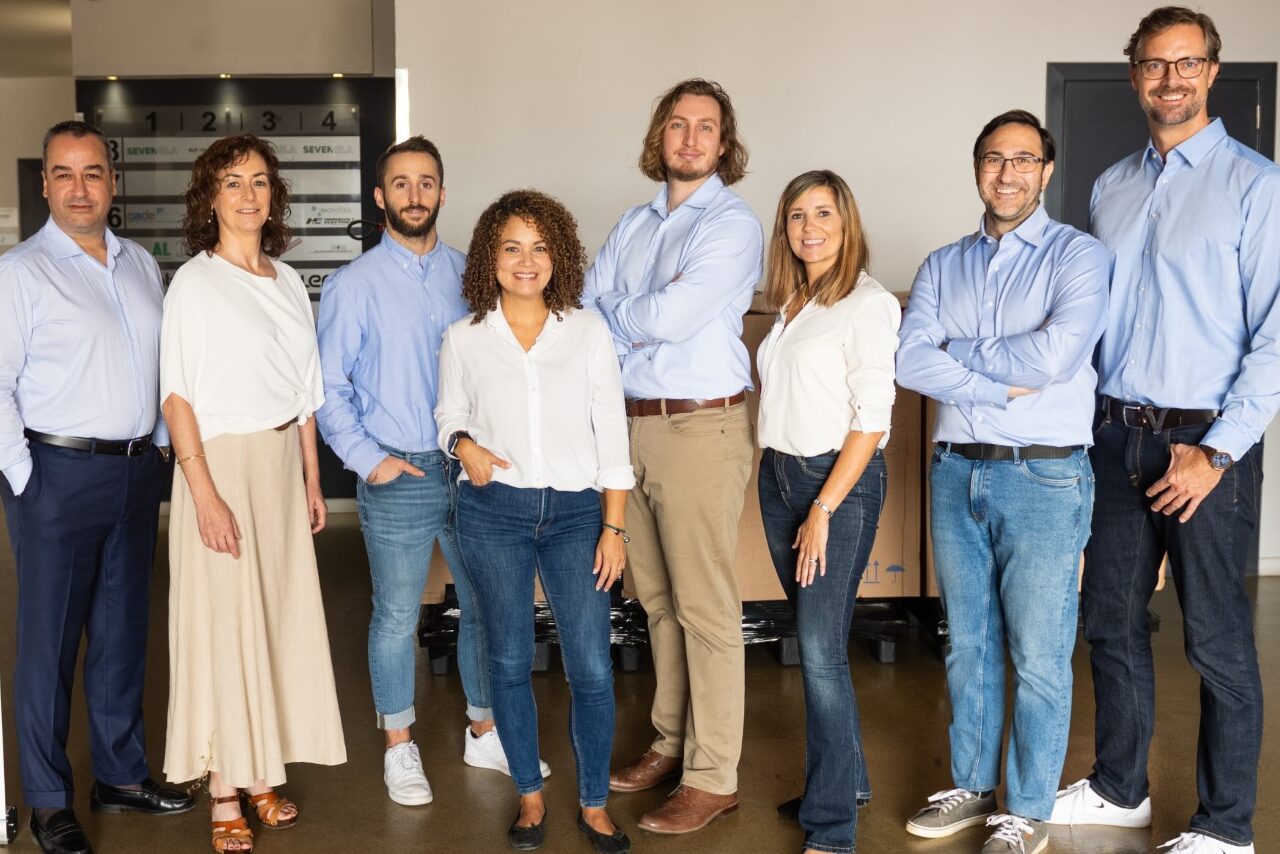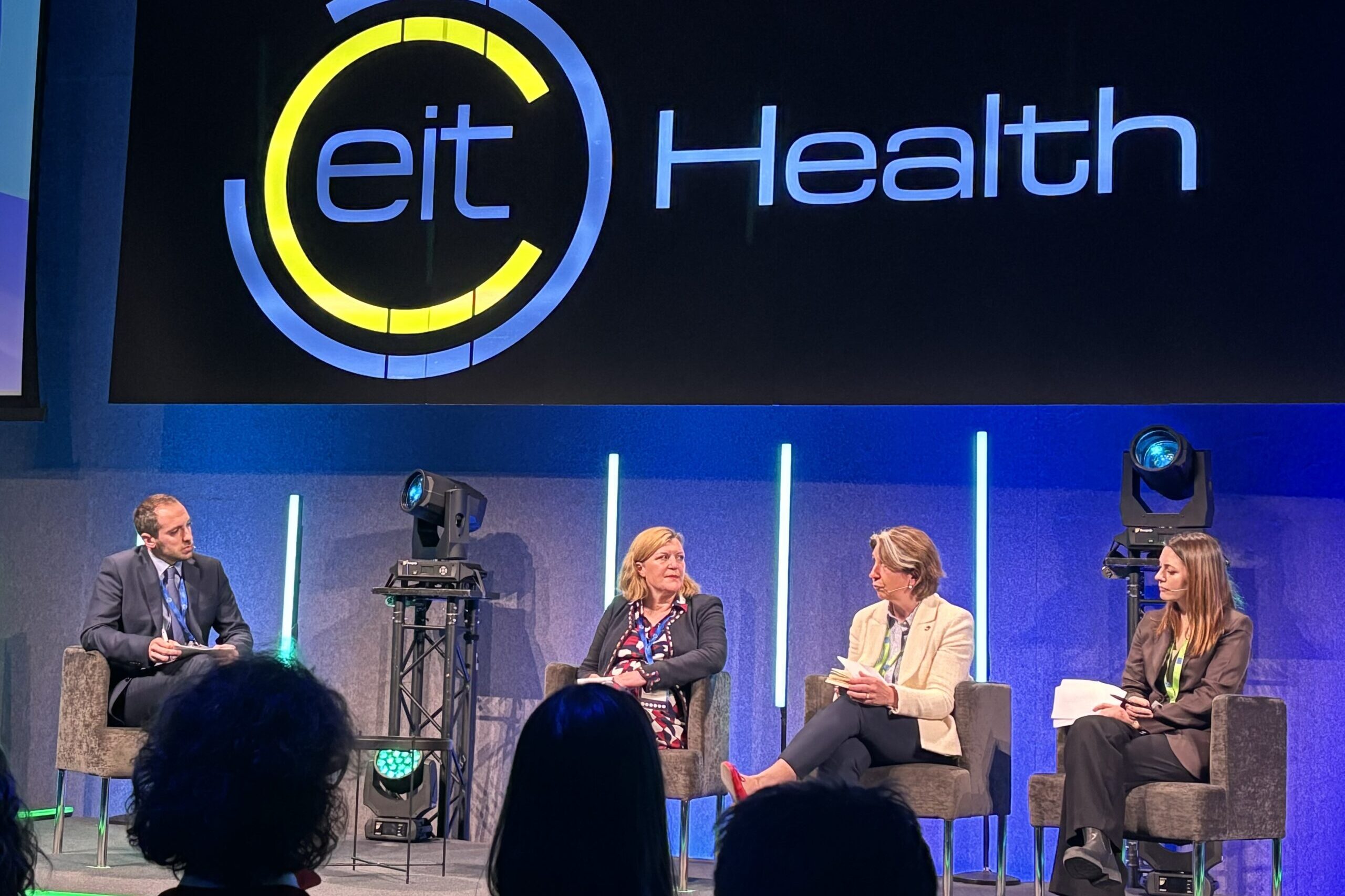6th December 2023
In our latest instalment of the Conversations with Our Network series, we catch up with Siobhán Freeney, patient advocate and educator. As a person with lived experience of breast cancer, Siobhán shares her insights on the challenges of breast cancer screening, the power of information and the impact of initiatives like the European Health Data Space.
Siobhán is also a key contributor to our recently published report titled ‘Implementing the European Health Data Space in Ireland‘ (EHDS).
Q1. Tell us about your journey as person with the lived experience of breast cancer and how it has shaped your role as a patient advocate?
I was diagnosed in December 2015 with invasive lobular breast cancer, a subtype of breast cancer not widely talked about. Breast cancer is diverse, with various subtypes often neglected in broader discussions. Invasive Lobular cancer, is the second most common subtype of Breast Cancer, it was a term unfamiliar to me at the time of diagnosis. I had no family history of Breast Cancer. My Mum had died from lung cancer 34 years earlier but unfortunately, her records were inaccessible. I had now unanswered questions about the possibility that her diagnosis may have been Stage 4 or De Novo Breast Cancer.
This uncertainty made me question my own diagnosis and why it had eluded detection on my screening mammograms. For many years I’d had clear mammograms, including the latest one six months before my diagnosis, yet I was diagnosed with a 7cm stage 3 ILC tumour, with metastatic spread to my lymph nodes.
The lack of information about lobular breast cancer made me curious about why it wasn’t more prominent in discussions or on cancer organisation websites. As I began to do my own research it led me to discover issues involving breast density and breast cancer screening. 43% of the screening population have dense breasts. Breast density shows up as white areas on a Mammogram as does breast cancer, this white on white or ‘Masking’ means that breast cancer is missed in dense breasts. Women in Ireland are not notified when their Mammogram indicates that they have dense breasts. In 2016 I initiated an awareness and education campaign through the platform beingdense.com focusing on breast density and its associated risk factors. For seven years, we’ve been actively working to share evidence based awareness and education and to campaign for a routine, standardised breast density notification protocol.
In 2019, in collaboration with Breast Cancer Researchers from University College Dublin, Trinity College Dublin, and the Royal College of Surgeons in Ireland, I founded Lobular Ireland. This initiative has led to a collaborative international network of ILC patient advocates and researchers associated with the European Lobular Breast Cancer Consortium.
Q2. As a patient advocate, what are the key issues you have encountered while working with breast cancer patients?
In the year following my diagnosis, I made contact with a patient advocate in the US and subsequently connected with others who, like me, felt the need to address the informational void around our specific subtype of cancer. In 2016, the Lobular Breast Cancer Alliance was founded in the US by a group of patient advocates following a breast cancer conference in Pittsburgh.
This alliance of independent advocates, much like me, had recognised the dearth of reporting on lobular breast cancer. Discovering this community felt like finding my tribe—a group that truly understood the challenges we were facing. They were the inspiration for Lobular Ireland.
Navigating the landscape of patient advocacy in Ireland and Europe, I realised that the lack of information about lobular breast cancer was not unique to our region. Invasive Lobular Cancer had been an overlooked and under reported subtype. For patients and individuals facing cancer diagnoses, a significant and most frustrating aspect can be scarcity of information. While we live in an era where data is readily available, accessing our personal health records remains a significant challenge.
The introduction of GDPR was expected to revolutionise access to personal records, but unfortunately, it hasn’t delivered as anticipated. The persistent lack of information and education causes unnecessary anxiety and was for me, one of the most frustrating elements of being a cancer patient.
Q3. How important is access to accurate and up-to-date health information for breast cancer patients, and what steps have you taken to ensure they have access to reliable resources?
As a patient advocate, my approach has been to prioritise sourcing and sharing evidence-based information. Working closely with researchers has been key because it ensures that the information is grounded in rigorous scientific study.
In addition to collaborating with researchers, I’ve leveraged the support of reputable organisations both in Ireland and Europe. There’s also a learning curve in discerning which scientific papers to rely on and where to obtain trustworthy information. It’s crucial to be selective about the sources one engages with, given the abundance of misinformation online.
Personally, I advocate for a proactive approach to providing information to patients. Ideally, upon diagnosis, individuals should be handed a leaflet specific to their own disease (sub) type. This should include guidance on reliable sources for further information. Unfortunately, the common advice to patients not to Google their condition is impractical. Patient forums and educational platforms have proven to be valuable sources of insight and learning.
Q4. European Health Data Space (EHDS) aims to facilitate the sharing of health data across borders to improve healthcare and research. In your opinion, what are the potential benefits and challenges of such an initiative?
From a patient’s perspective, the ease of access to one’s health records, irrespective of geographical location, will be transformative. Seven years ago, I began advising women to carry their records if they moved, emphasizing the importance of having images for comparison with subsequent screenings. With this initiative, such concerns become obsolete. Records can be maintained and accessed seamlessly, eliminating the need for individuals to manually manage their health data as they move or transition through various healthcare systems.
Family history is another critical aspect, especially for cancer patients. The EHDS initiative facilitates access to genetic information, clinical trials, and a consistent, trustworthy repository of shareable and transferable data. It empowers patients with a comprehensive overview of their health history, fostering informed decision-making.
Moreover, the potential for multilingual accessibility enhances the initiative’s utility. In the event of one falling ill while on holiday in a different European country, patients will be able to seek medical assistance, and healthcare professionals will be able to access medical records in a language they understand. This interconnectivity aligns with the EHDS vision, providing patients with a seamless and secure healthcare experience.

Q5. How do you think the EHDS can contribute to improving breast cancer care and research in Europe?
The benefits extend across various dimensions, contributing significantly to the broader framework of Europe’s Beating Cancer Plan.
Being actively involved on various health steering committees, I’ve witnessed the extensive benefits that patients stand to gain. The initiative, coupled with the European Cancer Plan, presents an exciting avenue for collaborative efforts in breast cancer care and research. The shared connectivity will help smaller countries like ours to participate in an accessible shared repository of health data and contribute meaningfully to advancements in research and healthcare.
One notable attribute of the EHDS is that there has been public patient involvement right from the initiative’s inception. This ensures transparency and helps to address public concerns about information sharing. As a patient advocate, I foresee the EHDS mitigating fears and creating a culture of information-sharing, essential for fostering a robust healthcare ecosystem.
EIT Health Ireland-UK has published a new report titled ‘Implementing the European Health Data Space in Ireland on 27 November which examines how ready Ireland is for the EHDS regulation and sets recommendations for policymakers on how to move forward. Click here to read more about the report launch event.
MOWOOT secures over €2M from Next Generation funds

Learn how EIT Health accelerated their journey.
Join the heartbeat of healthtech in Munich this June

Discover the third annual health.tech conference.
Health experts make recommendations on EHDS implementation

Discover our new Think Tank report.